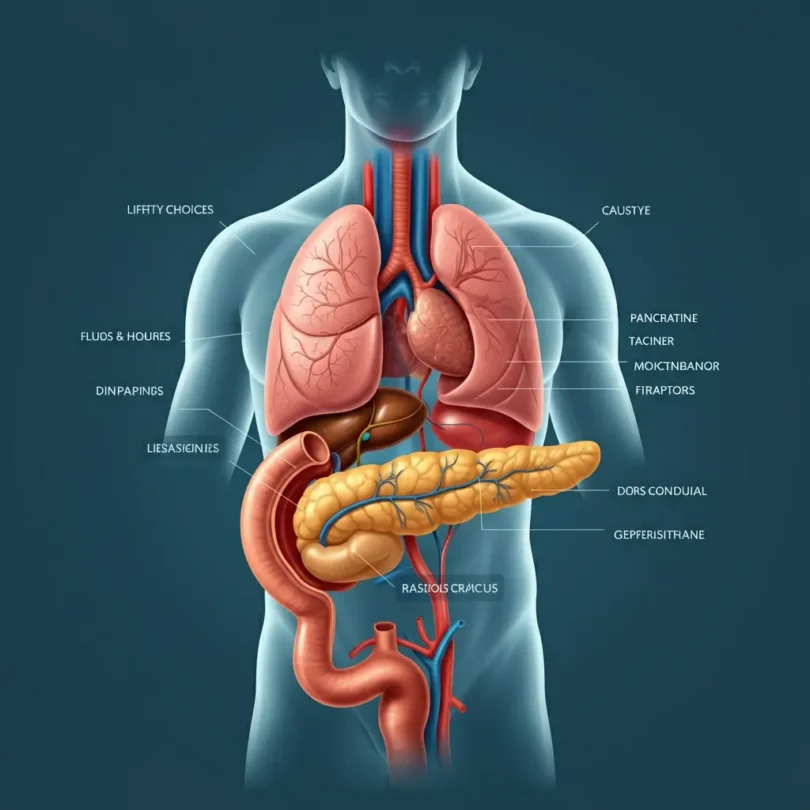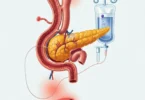The causes of the development of pancreatic cancer are not known. There are several factors that may increase the risk of disease. Among the most important risk factors the smoking is on top and alcohol consumption. According to current findings people that the stomach has been removed, have more chance of developing this disorder. Moreover, the diet and genetic factors play important role in the development of pancreatic cancer.
The following factors increase the risk of pancreatic cancer:
Risk factor: Smoking
Tobacco is most important risk factor for the development of pancreatic cancer. It is estimated that smokers have an approximately 3.5 fold increased risk of developing pancreatic cancer. Risk is further increase by certain factors, such as high alcohol consumption. Even passive smoking is probably true as a risk factor for pancreatic cancer.
It is estimated that today about a quarter of all pancreatic cancers are causally associated with smoking.
Risk factor: Alcohol
Alcohol also appears to increase the risk of developing pancreatic cancer. A heavy drinking increases the risk of disease in men and women by an estimated 2.5 times. If other factors, especially smoking added, the risk of developing pancreatic cancer appears to increase further.
Risk factor: pre-existing conditions
Risk of pancreatic cancer is high in those people who had to undergo a stomach operation previously, for example due to a stomach ulcer. The present data suggest that the risk is increased in this case by three to seven times.
Pancreatitis or diabetes mellitus as well as treatment of tumors in the abdominal cavity (eg radiotherapy) appear to increase the risk of pancreatic cancer.
Risk factor: Nutrition
What role dietary factors play in the development of pancreatic cancer is currently not yet clearly proven scientifically. Studies showing a link between the consumption of red meat and increased pancreatic cancer risk but could not be confirmed. However, regular consumption of alcohol or grilled food increased risk of pancreatic cancer. Large studies have shown that a diet rich in fruits and vegetables with high fiber and vitamin content can reduce the risk of developing pancreatic cancer. A balanced diet also helps to maintain a healthy body weight. Because obesity is considered a scientifically proven risk factor for pancreatic cancer.
Environmental influences
Environmental influences such as solvent (2-naphthylamine, benzidine or benzene derivatives) and nickel are also risk factors. Passive smoke is also an important risk factor because smoke from burning end of cigarette is more carcinogenic in nature.
Risk factor: Genetic factors
There are families in which pancreatic cancer occurs. The proportion of genetic tumor diseases of the pancreas is estimated at about 5 to 10 percent of the total. In the vast majority of patients, however, there is no genetic basis for the development of a pancreatic carcinoma.
The risk of developing pancreatic cancer is particularly high in people who suffer from a hereditary pancreatitis. This disease is a genetic defect that can be inherited within families.
Different and rarely occurring inherited diseases can also increase the risk of pancreatic cancer, such as the MEN-1 syndrome (MEN = multiple endocrine neoplasia), the von Hippel Lindau syndrome and Lynch syndrome (also HNPCC = hereditary non-polyposis colorectal cancer), diseases associated with tumors in various organs. Also, the breast and ovarian cancer syndrome, and the Peutz Jeghers syndrome also known as hereditary intestinal polyposis syndrome, are associated with an increased risk of pancreatic cancer.







